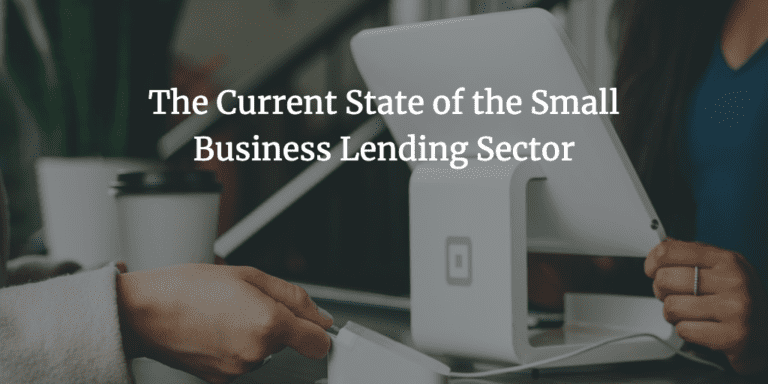If you look back to the lending landscape over the last ten years, one of the biggest transformations has been in small business lending. Options for US small businesses were severely limited a decade ago and the options that did exist were arduous. Fast forward to today and there has been plenty of innovation.
In this post we’ll highlight some of the recent trends and share just how small business lending is being transformed.
The Pioneers of Small Business Lending
The companies that I view as pioneers in this space are Kabbage and OnDeck. OnDeck was founded in 2006 and Kabbage in 2008, tackling small business lending at a time when virtually no one was looking to make improvements in the space. The companies are similar in that they both allow small businesses to get quick access to capital through an online or mobile application.
Over time we’ve seen OnDeck shift their business model from selling loans to investors towards realizing revenue from the interest spread. The company made waves several years ago when they announced JP Morgan Chase as a customer of OnDeck as a Service now known as ODX. That partnership has since dissolved but OnDeck still counts PNC Bank as a customer and there have been hints at new partnerships being announced in the coming quarters.
While powering the small business lending operations at the banks hasn’t caught on as fast as many had thought there is still a large market here and one that I think OnDeck still has the potential to capitalize on. OnDeck is also pursuing a bank charter which could eventually lead to the company serving small business customers outside of lending.
Kabbage also offers the Kabbage Platform and currently has ING, FleetCardsUSA, Sage, and Santander among others as customers. Kabbage has focused on making life as simple as possible for small business owners with their direct lending operations. They have been pioneers in using alternative data combined with technology that has allowed them to fund small business customers extremely quickly (in a matter of minutes).
Kabbage recently acquired Radius Intelligence which has a database with 20 million small and medium-sized businesses. Radius Intelligence’s technology will be integrated into Kabbage and their products will no longer be available to other customers.
Although Kabbage and OnDeck were early to small business lending there are many other names in this space with varying models and scale including Funding Circle, Streetshares, Fundbox, BlueVine, Biz2Credit, Fundation, and Credibly to name a few. LendingClub also has a small business lending operation but they primarily work with partners Funding Circle and Opportunity Fund today to originate these loans.
The Challengers of Small Business Lending
This group of small business lenders includes companies that didn’t necessarily start out with a small business lending operation but have made a natural shift into the space. The biggest differentiator for these firms is that they already have a relationship with small businesses, so they have two distinct advantages: low customer acquisition costs and access to proprietary data.
Probably the most recognizable name is PayPal and the Working Capital product which, according to deBanked, has surpassed OnDeck in small business lending volume. PayPal launched this program back in 2013.
Another big name in small business lending is Square Capital, the company behind the payment processing terminal hardware. The service was launched in 2014 to offer small loans to their already large list of merchants. To date according to their website they have extended over $5 billion in loans to 275,000 sellers.
The most significant news in small business lending as of late was the announcement of the payments platform Stripe launching Stripe Capital, which seems to be a similar offering to what Square is doing. Stripe is working with a single banking partner to fund the loans which are available to customers the next day. Stripe also recently launched their business credit card offering.
Other companies worth mentioning are Quickbooks Capital and Shopify. Quickbooks Capital offers loans to small businesses that use their software suite, a relatively new offering that was announced in 2017. Given the deep financial data, they have on small businesses they are uniquely positioned to offer loans and have decided to fund the loans off their own balance sheet. Shopify is also getting some traction, reporting $76.4 million in merchant cash advances in Q3 2018. And of course, this list wouldn’t be complete without mentioning Amazon who we are always keeping an eye on and have launched lending to sellers in certain markets.
Further reading: See this article from deBanked which includes an originations table for the major small business lenders.
The small business lending space, to me, is the most interesting vertical given how much it has changed over the last decade. Every business is unique which makes it a much more challenging endeavor to apply automation into the underwriting process. Some of these companies have proven that it is possible to make a profit on small loans which traditional banks have avoided for years. Looking forward I expect a number of these firms will transition to become a one-stop-shop for small businesses, not just loans but credit cards, banking solutions, and beyond.


